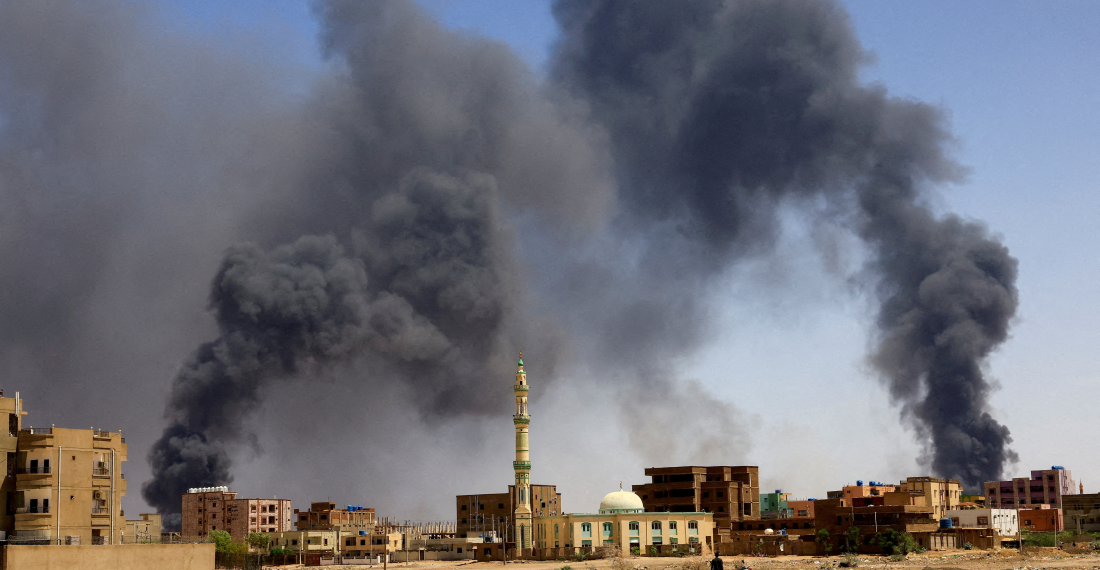A ceasefire struck between the Sudanese army and the rival paramilitary group the Rapid Support Forces is under threat as clashes broke out in the capital city on Wednesday (24 May).
The week-long ceasefire was agreed after talks in the Saudi port city of Jeddah on Saturday (20 May). The ceasefire, which was due to come into force on Monday evening with an internationally-supported monitoring mechanism, was supposed to allow for the delivery of humanitarian aid. Violence has also been reported in the western region of Darfur.
Reuters reports that the ceasefire had brought a relative lull in fighting on Tuesday, but a meaningful uptick in humanitarian relief did not materialise. Previous ceasefires struck between the Sudanese army and the RSF have also failed to stop the violence.
25 million people in need of aid
Since fighting broke out on 15 April as the warring parties failed to reach an agreement over a transition to a civilian government, humanitarian conditions in Sudan have become increasingly desperate, with reports of food, water and power shortages in the capital city, Khartoum, which have been further compounded by widespread looting.
Around 1.3 million people have reportedly fled their homes in a crisis that threatens to destabilise the whole region. More than 1 million people have been displaced inside Sudan, with some 300,000 having fled to neighbouring countries such as Chad, Egypt, and Saudi Arabia.
The UN reports that some 25 million people in Sudan are now in need of aid, which is over half the population.







